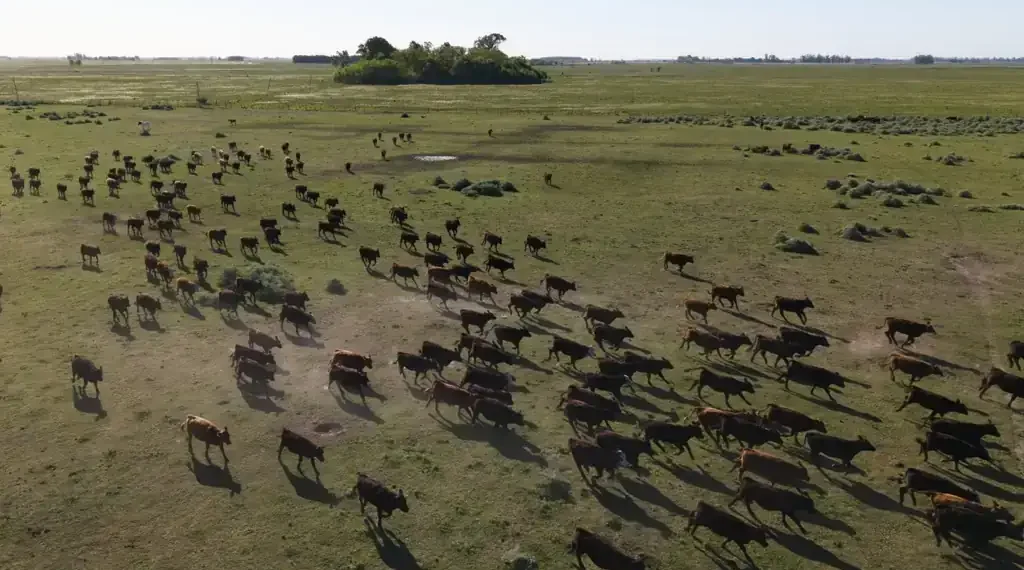President Donald Trump’s proposal to import more beef from Argentina as a way to ease record-high meat prices has drawn sharp criticism from American ranchers and skepticism from agricultural economists. Industry groups say the move threatens domestic producers who are finally seeing profits after years of hardship, while experts doubt it will lower grocery store prices in any meaningful way.
Ranchers Decry Plan as Threat to Hard-Earned Recovery
Trump’s plan to expand beef imports from Argentina has fractured his traditional base of support among U.S. ranchers. The National Cattlemen’s Beef Association, the Ranchers-Cattlemen Action Legal Fund United Stockgrowers of America (R-CALF USA), and other farming organizations have all spoken out against the proposal, warning that it could undermine local producers.
South Dakota rancher Brett Kenzy said the government should allow market forces, not federal intervention, to determine beef prices. “I love ‘Make America Great Again’ rhetoric. I love ‘America First’ rhetoric,” he said. “But to me this feels a lot like the failed policies of the past — the free trade sourcing cheap global goods.”
The U.S. beef industry is currently benefiting from high prices after several challenging years marked by drought, low cattle prices, and rising production costs. Analysts say the U.S. cattle herd is the smallest since 1961, a key factor behind record prices.
Experts Say Increased Imports Unlikely to Lower Prices
While Trump’s plan aims to curb high grocery prices, agricultural economists say Argentine beef represents too small a portion of U.S. imports to significantly affect the market.
According to Kansas State University agricultural economist Glynn Tonsor, Argentina currently supplies only about 2% of total U.S. beef imports — equivalent to 72.5 million pounds through July compared to more than 15 billion pounds produced domestically. Even doubling Argentine imports, he said, “wouldn’t move the needle much” on retail prices.
Much of the imported beef from Argentina is lean trimmings used in blending with fattier U.S. cuts to produce hamburger meat. “The impact would primarily be on ground beef, not premium cuts like steak,” Tonsor said. The average U.S. steak price remains above $12 per pound, while ground beef recently reached a record $6.32 per pound.
Market Jitters and Rancher Uncertainty
Even if imports from Argentina don’t meaningfully lower prices, the mere proposal has unsettled markets. Tonsor noted that uncertainty itself can deter ranchers from investing in expanding herds or new operations. “The more uncertain something is, the less likely producers are to put money on the line,” he said.
Missouri cattle producer Bryant Kagay said cattle prices fell by over $100 per head immediately after Trump mentioned the plan, though they have since partially recovered. “I continue to see things that I don’t think are in the best interest of our country and the average citizen,” he said, adding that he hopes Trump “starts to do what’s best for everybody.”
Contradiction With Tariff Policy and Rancher Expectations
Many ranchers argue that importing more beef contradicts Trump’s long-standing “America First” message and his earlier tariffs intended to protect domestic producers. The administration has maintained steep tariffs on Brazil — a major beef exporter — and placed restrictions on Mexico amid agricultural pest concerns.
Bill Bullard, president of R-CALF USA, said the new plan undermines those efforts. “It’s a contradiction of what we believed his new course of action was,” he said. “We thought he was on the right track.”
Texas A&M livestock economist David Anderson echoed that sentiment, noting that ranchers are finally benefiting from stronger prices after years of losses. “We finally get some good prices,” Anderson said, “and we start talking about government policy to bring down prices.”
Argentine Producers Welcome Potential Expansion
While U.S. ranchers are wary, Argentine livestock producers view the proposal as an opportunity. Augusto Wallace, a cattle producer in Argentina, said, “Whenever an additional buyer comes, it’s beneficial for everyone.”
However, economists warn that a surge in exports could raise beef prices within Argentina, potentially hurting local consumers. Argentina, one of the world’s largest beef producers, has long balanced domestic consumption with export opportunities, a politically sensitive issue in that country.
Administration Promises Support for Ranchers
Despite the backlash, the Trump administration insists the proposal is part of a broader strategy to stabilize prices while supporting ranchers. Agriculture Secretary Brooke Rollins said the government plans to expand domestic beef production by opening new processing plants, increasing grazing land, and negotiating new trade deals for American beef.
“The bigger supply — even aligned with bigger demand — is going to allow those prices to come down, but also to have a vital industry for these ranchers to survive,” Rollins said in an interview with CNBC.
Senator John Hoeven of North Dakota said he expects more details soon after speaking with administration officials. “It’s very important that we support our cattle ranchers,” Hoeven said.
Mixed Reaction Among Ranchers
Some ranchers remain skeptical but not alarmed. South Dakota rancher Cory Eich said he doubts the plan will have lasting consequences. “Nobody’s happy about it, let’s put it that way,” he said. “Personal opinion, I thought it was kind of a ruse when he mentioned it. I mean, it’s coming from Trump, so take everything there with a grain of salt.”
While many ranchers hope Trump will reconsider, the broader debate highlights tensions between free trade policies and domestic protectionism — a balancing act that continues to define American agricultural policy.
This article was rewritten by JournosNews.com based on verified reporting from trusted sources. The content has been independently reviewed, fact-checked, and edited for accuracy, neutrality, tone, and global readability in accordance with Google News and AdSense standards.
All opinions, quotes, or statements from contributors, experts, or sourced organizations do not necessarily reflect the views of JournosNews.com. JournosNews.com maintains full editorial independence from any external funders, sponsors, or organizations.
Stay informed with JournosNews.com — your trusted source for verified global reporting and in-depth analysis. Follow us on Google News, BlueSky, and X for real-time updates.













